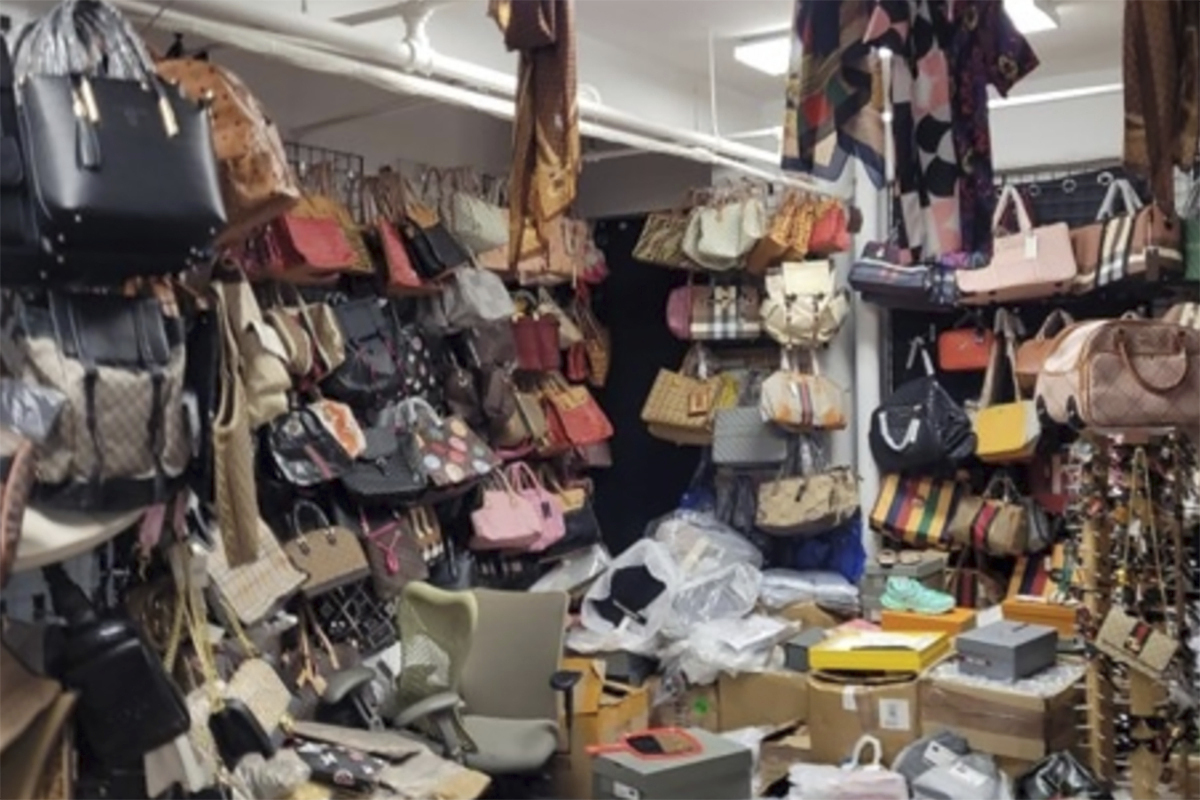
Millard: Don’t let Black Friday fund criminal gangs
“Don’t let Black Friday fund the Black Market.”
That was the warning from Alysa Erichs, former Acting Executive Associate Director of Homeland Security Investigations, to Americans looking for good deals on their holiday shopping. The internet is awash in counterfeit, stolen, and other illicit goods, and when bargain-hunting Americans buy them, they are stuffing the stockings of criminal gangs.
“From bottles of diluted Jack Daniels to lead-laced counterfeit Yeti dog bowls, the criminals profiting from the sale of illegal goods do not care who they hurt or whose holidays they ruin,” said Erichs, who now works with United to Safeguard America from Illegal Trade (USA-IT). The organization is a coalition of companies working together to fight against fake and stolen goods that it says too often end up in the shopping bags of American families.
During a recent press event, USA-IT presented a display of recently seized counterfeit goods. Among them, a knock-off iPhone that was running Android software, high-end Louis Vuitton handbags, and a kids’ hoverboard from a counterfeit manufacturer whose products burst into flame.
To make matters worse, the fake goods could include dangerous levels of chemicals. The American Apparel & Footwear Association (AAFA) recently tested 47 counterfeit products, including clothing and shoes. Seventeen of the tested items had high lead, arsenic, and cadmium levels.
“Not only do these items fail U.S. safety standards,” said Jennifer Hanks, Director of Brand Protection for the AAFA, “but they could have made consumers dangerously ill.”
Whatever their quality, the message for shoppers is buying these cheap knock-offs means sending cash to the same criminal cartels that smuggle deadly fentanyl across America’s border and engage in the horrors of human trafficking.
Michael Ball, Acting Deputy Assistant Director of Homeland Security Investigations, called it “poly criminality.”
“Like any business, the cartels are diversifying. Why are drug dealers in Mexico selling counterfeit goods? It’s the same reason they’re shipping fentanyl into the U.S. — to make money,” Ball said. “You’re talking about large organized-crime organizations that, in some cases, fund terrorism. That’s what we’re funding as consumers, inadvertently, by spending a little less money to buy a counterfeit product.”
The problem is real and widespread. Counterfeit goods of varying quality, 75% from China and Hong Kong, end up in the hands of millions of Americans each year. A Michigan State University Center for Anti-Counterfeiting and Product Protection survey found that 66% of American respondents bought counterfeit goods in the last 12 months.
According to the survey, around 50% came from social media, while 45% came from an e-commerce platform.
According to Hanks, counterfeiters are very aware of changes in fashion and consumer tastes. “When there’s an announcement of a collaboration or a new product, a counterfeit is very quickly up and running,” Hanks said. A quick review of the internet showed products that are on the “hot toys for Christmas 2023” lists — like Furby, Barbie, and Elmo — are also seeing a surge in counterfeit sales.
LatentView Analytics reports counterfeit toys generated over $32 billion in revenue in the U.S. in 2019 alone.
Experts like Erichs, Hanks, and Ball said shoppers who don’t want their holiday cash to go to cartels can start by not making purchases on websites they have never seen before or buying via social media sites.
“If you have doubts, go back to the legitimate brand website or shop on the specific store for the platform,” said Hanks. “Look at the third-party you’re buying from…platforms must now share third-party seller information. If you look at the seller, an address or business information should be available. If it’s not listed publicly, it’s in the bill of sale after.”
Clicking on pop-up ads also raises the danger, Ball said, adding some ads aren’t even trying to sell you products, just steal your data.
“A lot of these ad clicks – the whole reason for them…is to steal your personal information,” Ball said. “They’re getting you on every end that they possibly can.”
Shoppers who run across fakes can report it to the Federal Trade Commission or their state attorney general. Most reputable online retail sites have reporting options on their web pages, too.
But Hanks said the first line of defense is common sense.
“Did you click on an ad via social media that took you to a third-party website filled with misspellings? Does the ad say, ‘Deep discounts, 90 percent off, but you must act fast?’ Well, it’s probably too good to be true. Think twice.”
Taylor Millard writes about politics and public policy for InsideSources.com.


